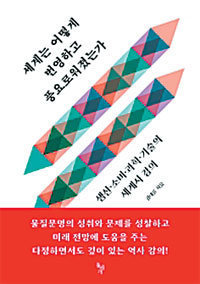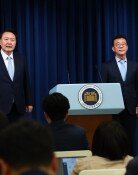Talks of era of abundance in human society
Talks of era of abundance in human society
Posted August. 28, 2021 07:17,
Updated August. 28, 2021 07:17

It is too early to conclude at the moment that human society enjoys a high level of abundance. It has only been less than three centuries since we humans started enjoying materialistic richness in human history. If it had not been for the Industrial Revolution, too well-known an event since we were in school, which led to an explosive spike in production and consumption as well as scientific and technological development, individual humans would be driven in an far fiercer competition in society.
This book looks back at the origin of abundance in human history from not only a macroscopic but also a microscopic perspective. Majoring in Western History at Seoul National University and studying Oxford University, the author teaches history at Daegu Gyeongbuk Institute of Science and Technology (DGIST). He deals with various cases of Western and Eastern regions including South Korea and provides a comprehensive view of how capitalism unfolds. Even with economic history taking up a large portion of the book, the author allows for better understanding by focusing more on actual cases and casual relationships than on statistics and figures.
The author takes one more step deeply into historical trends and events, which many of us are already familiar with, to answer “Why?” For example, as an era driven by fossil fuels opened up, China gave up on maritime advances and failed to achieve industrialization in the private sector while Britain captured a transitional chance to spark the Industrial Revolution.
Added to this, this book easily explains the ups and downs of countries by historical phase from a viewpoint of economic history. The author talks about crises that come with abundance and richness of our time at the end part of the book while raising questions about climate change, inequalities and the future of the capitalist system. He implicitly shows how hopeful we stay about the future by having high expectations about cooperative relationships with the international community, global businesses and civic society.
pep@donga.com







